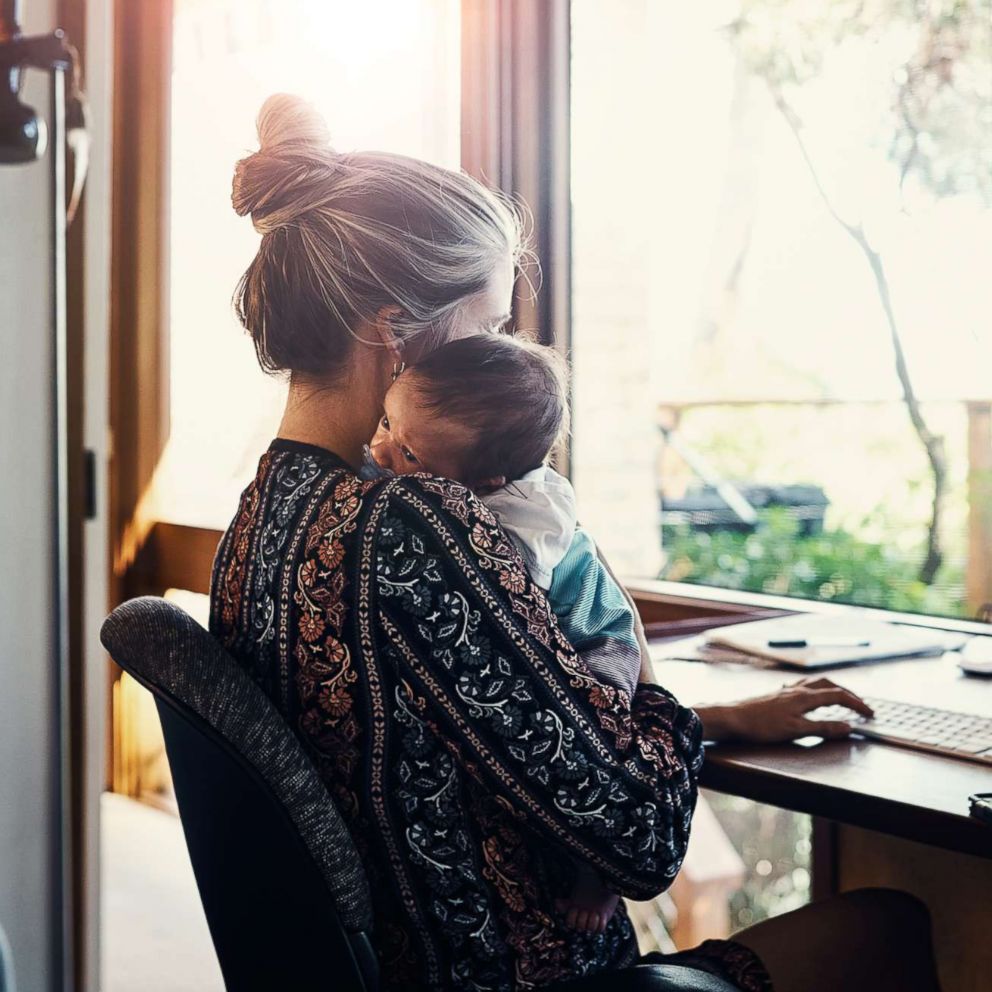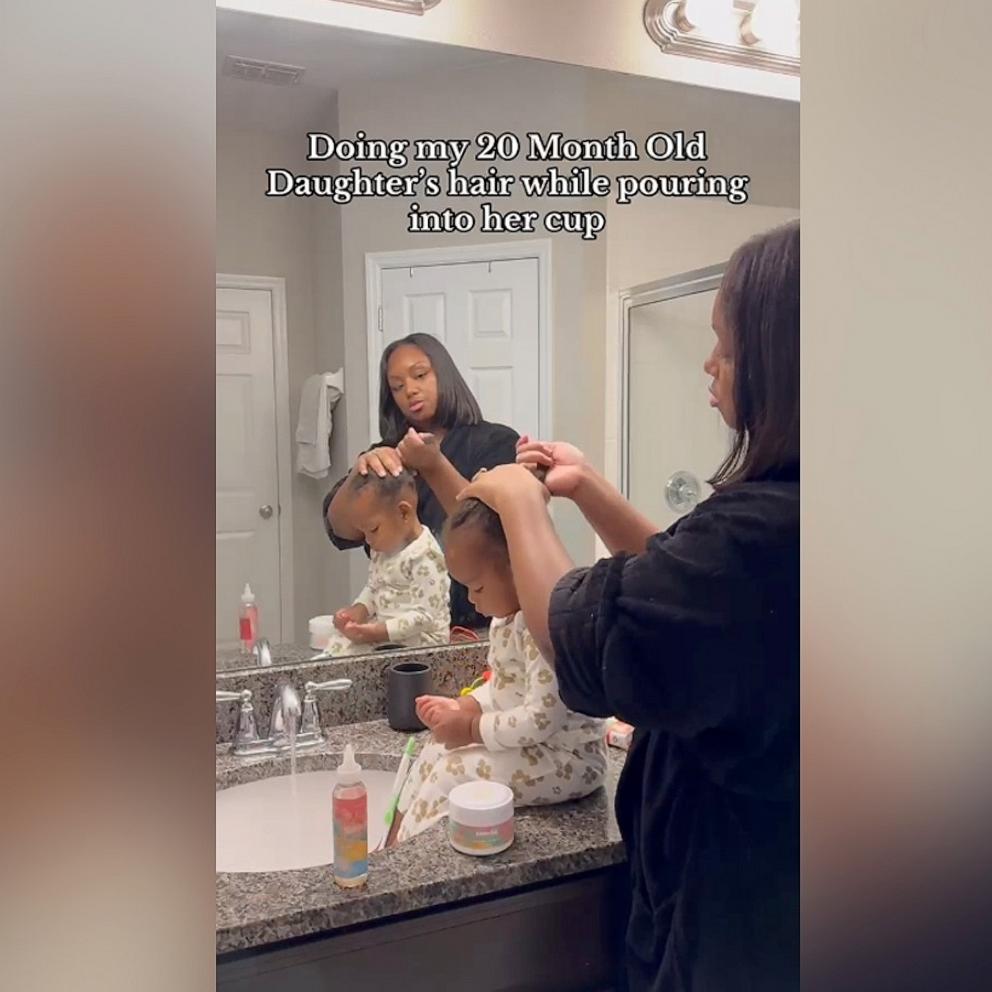Mom tells dads to ‘plan the dance’ for their kids in viral message
A mother of two from Chicago is sharing a reminder to her fellow moms that they don't have to do it all.
Lori Sugarman-Li, a family coach, wrote on Instagram about a female client who told her that after they spoke, she was going to meet with a group of moms to plan a father-daughter dance for their children's school.
Sugarman-Li added a message to both parents on her post, encouraging moms to "release" their obligation to feel like they have to do everything and calling on dads themselves to "plan the dance."
"School and community volunteering has for too long been categorized as women's work," Sugarman-Li captioned the post. "Dads - it's time to step in. Plan your dance. Show your daughters you don't think it should all fall on them someday too. Show your sons how to rock this beautiful work."
Sugarman-Li told "Good Morning America" that the idea that it is a group of moms, and not dads, organizing an activity for kids resonated for her both in her personal life and in her work as a family coach and facilitator for Fair Play, the movement started by Eve Rodsky to make the domestic workload more equitable among partners.
"It sort of struck me in that moment, that is representative of so many things and so many examples and so many hours of volunteering that women offer for the benefit of others," she said. "In sharing this example in the post, I really wanted to [highlight] that, in addition to having these important conversations about what goes on in the home, we should also start a conversation about what happens in our community and the weight of that community volunteerism that women carry."
Sugarman-Li, whose sons are 10 and 12, said she was at a parents' association meeting for her own sons last week, when she noticed it was a group of 17 women and not one man.
"I was so aware of that void of not having any male voices around the table," she said, adding that she spoke to fellow moms at the meeting about getting more dads involved. "We were laughing because not only did we go through the entire agenda at hand, to try to solve all those problems, but now we carry the problem of how to get more men involved."
Studies have shown for decades that women carry more of what researchers call the "invisible labor" at home, the tasks of running a household and keeping up with kids' emotional and physical needs, activities and schedules.
More recent research has also shown that the weight of all those tasks can lead to a greater impact on women's mental health and even burnout.
For many years, in heterosexual relationships, women assumed more responsibilities at home and in child-rearing because they were often the partner to stay home, while their male partner was the breadwinner outside of the home.
Now, even as those tides have changed, and more and more women work outside the home and many are the breadwinners in their family, the roles at home have stayed the same, new research shows.
In marriages where the husband and wife earn approximately the same amount of money, husbands spend around 3.5 hours more per week on leisure activities, according to research published this month by the Pew Research Center.
In marriages where both partners are equal earners, wives on the other hand, spend around two hours more per week on caregiving than husbands do and about 2.5 hours more on housework than their husbands, according to Pew's analysis of U.S. Census Bureau data.
At the same time, 77% of Americans say that when children are raised by a mother and father, it is best for children if both parents are equally focused on their jobs and their caregiving at home.

The only type of marriage where husbands spend more time on caregiving than their wives is when the wife is the sole breadwinner for the family, and even in those cases, wives spend as much time as their husbands on household chores, according to Pew.
"It’s not at all surprising," Sugarman-Li said of the Pew analysis. "It supports a lot of other research that I’ve read and it’s the reason why Fair Play and all these other conversations are so important."
Sugarman-Li also noted that the Pew analysis only covered the execution of tasks, meaning women may still be carrying a disproportionate amount of the mental load even if their husband is executing a task, like taking a child to a soccer practice.
"It’s everything from family preferences, family commitments, children's appointments, the doctors, the dentists, the camp forms to do my kids' underwear still fit, do they have they right kit for the play," Sugarman-Li said of the mental load. "All of the things that are swirling around that need to be done, they get compartmentalized in this mental load, organized there, and then divvied up in the execution, which is the hours of work you see reflected in the Pew study."
Fair Play, a movement that started with a book in 2019 and has since been turned into a documentary and a training method for families, works by making sure the person who takes on each task sees the full task through, from the mental load to the execution, according to Sugarman-Li.
"What Fair Play does is it takes the sort of mental part of a task and pairs it with the execution so that the person who doesn't own that task is able to release that," she said. "If you're going to the grocery store, it's not about, 'Okay, I'll do the grocery shopping if you give me a list.' If somebody else owns the grocery shopping, they also own understanding all of the foods that the family prefers, the brands, any allergies, any specific things that kids take in their lunches that don't have any allergens that may affect other children, what nights have sports and need to be a quick dinner."
Sugarman-Li noted that the goal is not an equal divide of household tasks, as in five tasks for each partner.
"It's not a system with a goal of 50/50," she said. "What I tell my clients is, I want to help you guys get to equal joy and equal rest, and whatever the balance of work and the dynamic of the work that gets you guys to that beautiful place, that's the magic for your family."
Sugarman-Li continued, "It's not about men necessarily getting more work to do. It's about this work being done more efficiently, more thoughtfully, and at end of the day, taking up less of our time."
5 tips for families
As a mom of two sons, Sugarman-Li said she is focused in her own home on making sure her sons both see their parents doing equitable work, and ensuring that they take part in the work too.
"There's such a huge opportunity to engage children in this work to raise the next generation, specifically to raise the next generation of boys to men, and stop this cycle of care work being passed from women to girls," she said, adding that the goal of engaging the whole family is to, "make this work of the home visible, give it value and find ways to make it a shared source of pride and not just a heavy load for mothers."
Sugarman-Li said that she sees through her work with clients and in her home with her husband and their sons that, "This is all so very possible."
She continued, "What is critical is we have these powerful conversations."
Here are Sugarman-Li's five tips for for engaging children in the work of home and family:
1. Be cognizant of the energy and language you apply to this work. Kids absorb this, and will look at the work similarly.
2. Explain why tasks are meaningful and how they make your shared space better.
3. Play to your kids' strengths when involving them. Understand where they source joy and esteem and identify tasks that connect.
4. Give them leeway to do the tasks (where safe!) in their own way. Explain the objective and enable and empower them.
5. Acknowledge effort and completion and do something fun together afterward.







